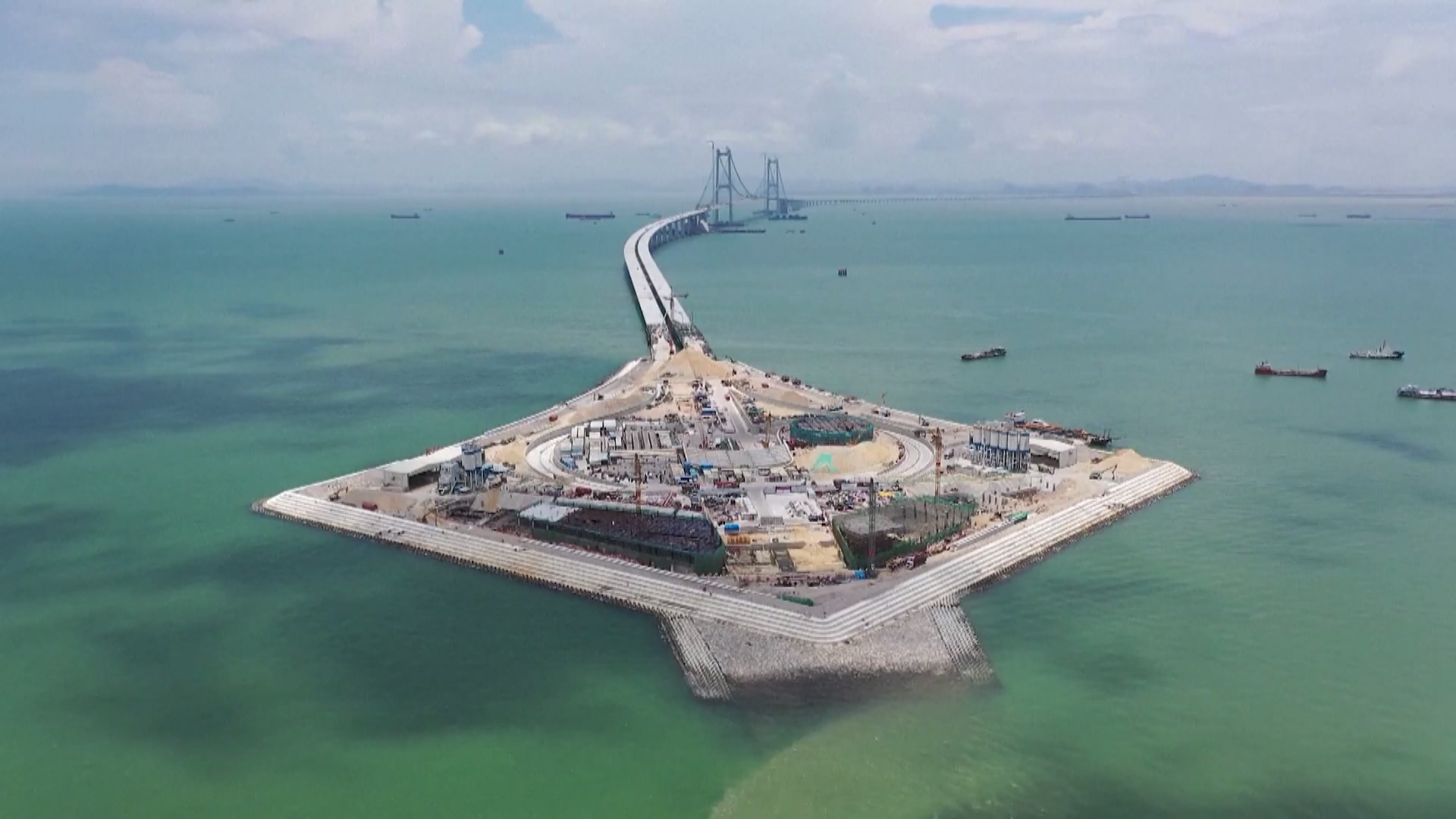
Photo shows the Shenzhen-Zhongshan Bridge in south China's Guangdong province, which will connect Shenzhen?on the eastern side of the Pearl River Delta?(PRD) and Zhongshan?on the western side of PRD. (PHOTO: VCG)
By?Staff?Reporters
Once a pioneer in China's reform and opening up, Guangdong province is now realizing high-quality development through deep integration of science and technology with industries.
In 2022, the province's R&D investment reached 420 billion RMB, and the R&D input intensity reached 3.26 percent, higher than the national average of 2.5 percent.
"Guangdong has continued to make breakthroughs on key technologies that are indispensable to industrial development, which has effectively supported the high-quality development of the province," said Liang Qinru, deputy director-general of the Department of Science and Technology of Guangdong Province.
According to latest statistics, Guangdong's comprehensive regional innovation capability has ranked first in China for six consecutive years, and the "Shenzhen-Hong Kong-Guangzhou Science and Technology Cluster" has ranked second in the global innovation index for three consecutive years.
While emphasizing original innovation, the province has gone all out to transform sci-tech results to productive forces.
The Shenzhen Institute of Synthetic Biology Innovation (SISBI) sets a good example. Led by the Shenzhen Institute of Advanced Technology of CAS, SISBI published 277 papers in 2022 alone, of which 28 were published in international journals such as Cell, Nature and Science.
At the same time, the institute pioneered a two-way model of "research meeting the needs of industry" and "industry supporting scientific research," which greatly drives the development of Shenzhen's synthetic biology industry.
Innovation has not only injected new momentum into industrial development, but also become a magic weapon for enterprises to succeed in the international market.
The green lithium-ion batteries developed by a company in the province are well received by consumers around the world, and relevant products are exported to more than 80 countries and regions in Asia, Europe and the Americas.
Apart from the new energy industry, Guangdong has cultivated 20 strategic industrial clusters, such as the next-generation electronic information, green petrochemical, and smart home appliances.
In the first quarter of 2023, the 20 strategic industrial clusters achieved an added value of 1.14 trillion RMB, with an growth rate of 3.1 percent.
The trio will conduct a series of experiments in fields such as life science, fluid physics, combustion science and materials science. Notably, this is the first time that fruit flies have been taken on a Chinese space mission as experimental subjects. What made scientists choose fruit flies? What experiment will they undergo?
